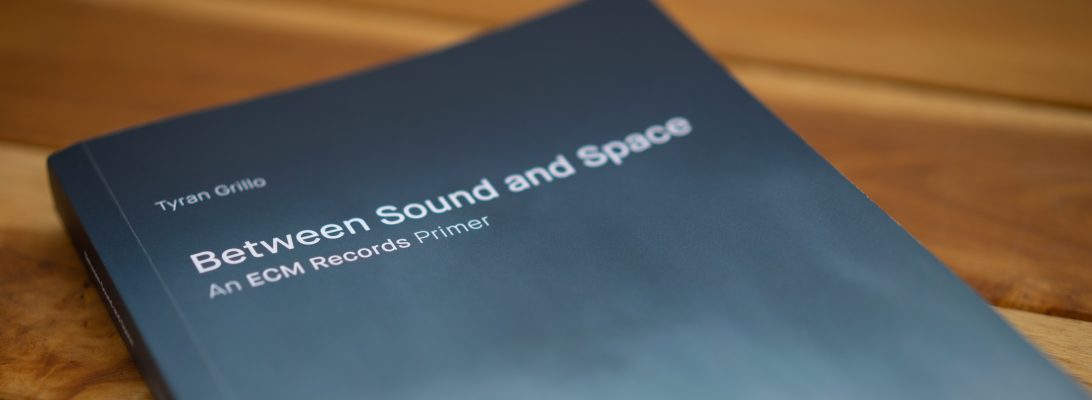Keith Jarrett
Charlie Haden
Jasmine
Keith Jarrett piano
Charlie Haden double-bass
Recorded March 2007 at Cavelight Studio
Mastered at MSM Studios
Produced by Keith Jarrett and Manfred Eicher
“This is spontaneous music made on the spot without any preparation save our dedication throughout our lives that we won’t accept as a substitute. These are great love songs played by players who are trying, mostly, to keep the message intact. I hope you can hear it the way we did.”
–Keith Jarrett
We sometimes think that the older we get, the more complicated we become, and that in our complexity we have more ammunition with which to defend our individuality in a dying world. This album proves that maturity is about filtering out all that distracts us from being who we are and finding just the right melody, taking comfort in the method over the message. The title of the first track, “For All We Know,” says it all. That two musicians, walking such different paths, can come together and create something so powerfully understated, so viscerally unfettered, is a testament to the creative potential of knowledge and the gift of life that allows it. Recorded in Jarrett’s home studio, this is more than just The Melody At Night, With You with an added bass. It is a heartfelt meditation on the philosophy of experience, a direct statement regarding the lives of its performers. This album might as well be called “Jazzmine,” for that’s exactly what it is: a mine of tried-and-true standards, each plucked carefully from the surrounding rock and arranged in a row of sparkling gems.
The album is generally mellow, but always effective. Tracks like “Where Can I Go Without You” brim with soulful introspection. Others like “One Day I’ll Fly Away,” “I’m Gonna Laugh You Right Out,” and “Goodbye” talk of resignation, filling our cup with unkept promises in the hopes that one final showing will make up for all of them. It is a bittersweet sadness, born from the pain that comes with loving someone who is too far away to requite, much less know of, that same love. “Body and Soul” strikes a delicate balance between recollection and regret and just grazes the edges of dissonance, giving certain traction to the tune. Jarrett sings as he spins a subtle energy. In this track we also get the most unmitigated bass solo, Jarrett merely providing the punctuation marks to Haden’s poetry. “No Moon At All” is more upbeat, a touch more joyful. And yet we come to realize this joy has been lost upon us with the passing of time. Haden’s solo here revels in the simple things that bring it melodic joy. Perhaps not coincidentally, this is one of the shorter tracks, further reminding us that our happiest moments are also the most fleeting. Last but far from least is “Don’t Ever Leave Me,” a comforting ballad that closes the album in near silence.
Over thirty years in the making, Jasmine was already a classic before Jarrett and Haden ever stepped into the studio to record it. It is as if the music had already existed and our dynamic duo merely needed to catch up with it. As Jarrett observes, Haden singularly embodies a “dichotomy between control and letting it go,” laying down righteous melodies that at once support and lead the way. Haden’s renderings are supremely gentle, the subtlest retouches on an already masterful painting. His solos go down easy like good advice, while Jarrett’s gorgeous supporting chords put that advice into action. Jarrett himself adopts a more autobiographical approach that manifests itself in a uniquely laid-back passion. He displays an intuitive sense of rhythm in the left hand, and with his right weaves variegated threads through the four-stringed loom of Haden’s bass. This mesh produces an unmatched synergy: take one variable away and you are left with an unsolvable equation.
The album jacket could hardly express more visually the magic that resides within its sleeve. Each rectangle, separate but also sharing the same line, is like the life of its respective musician. Neither is perfectly straight at the edges; a life drawn in freehand, as all lives are. There is an eternity contained in each, and yet for an indeterminate amount of time these two lives intersect, and from that overlap comes music so transparent that only its borders remain clear. For the musicians those borders are their instruments. Heavy and tangible, they respond only to the touch of those who know them best. For the listener those borders are the song titles, each telling a different side of the same story.
This is an album in the past tense, every sound a memory caught in the branches of our curiosity. Jarrett and Haden would seem to prize nostalgia above all—not by putting it on a pedestal, but by laying it at the pedestal’s feet. And while each track essentially follows the same format—i.e., a democratic entrance, a piano introduction followed by adlibbing, and solos from Haden and Jarrett before the two equalize—the formula never grows tedious, if only because its subtle negotiations speak volumes of an invisible history. And that is exactly the point. They’re not trying to break new ground here, but to see what can still be built upon the old ground before it disappears. And why not, for their materials are still resilient, pliant, and reliable. Listen to Jasmine for its quiet charm, for the way it sings without words, for the tireless care it embodies, but above all listen to discover just how honest music can be. Jarrett puts it best when he says: “An ecstatic moment in music is worth the lifetime of mastery that goes into it, because it can be shared.” How fortunate we are to be on the receiving end.


